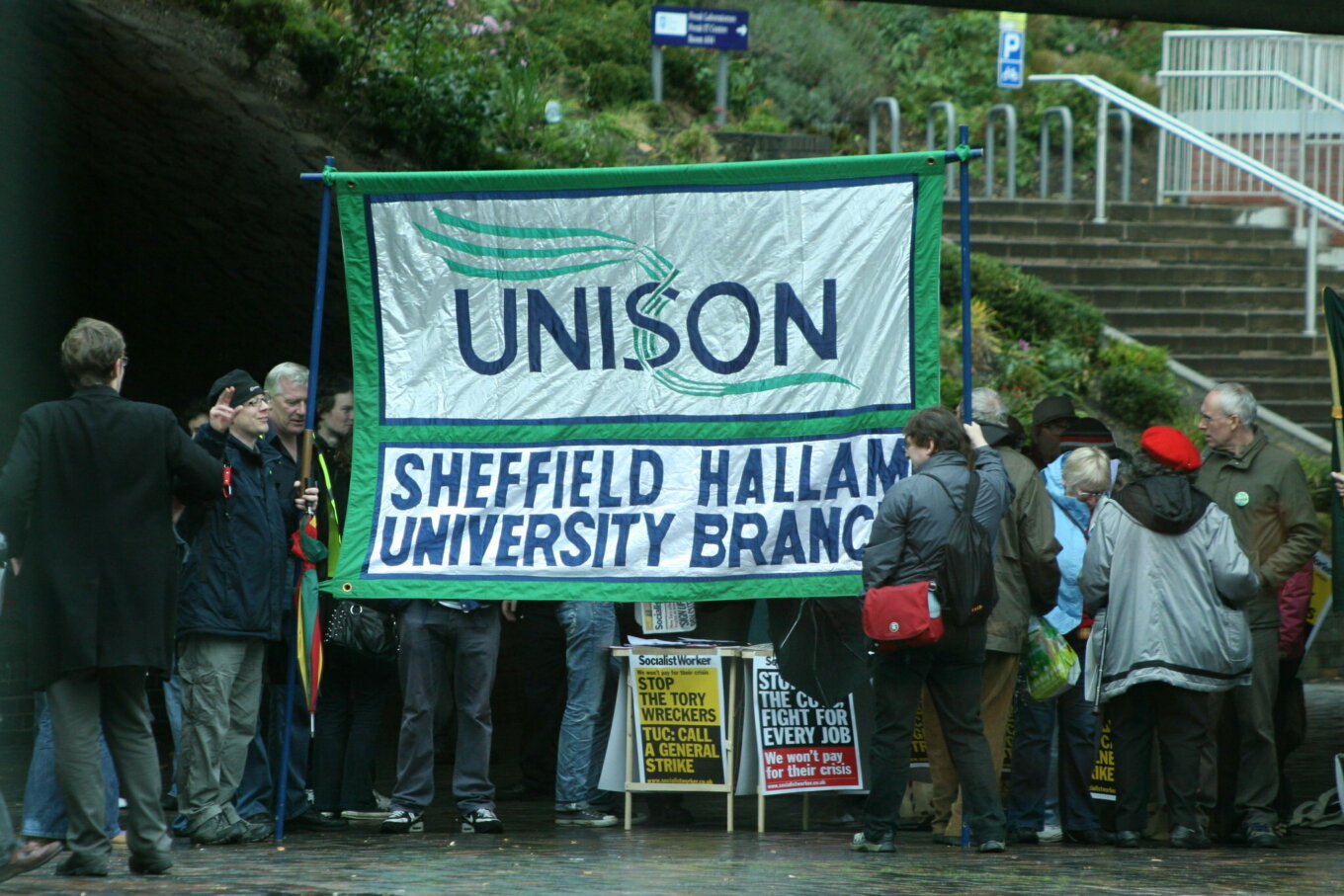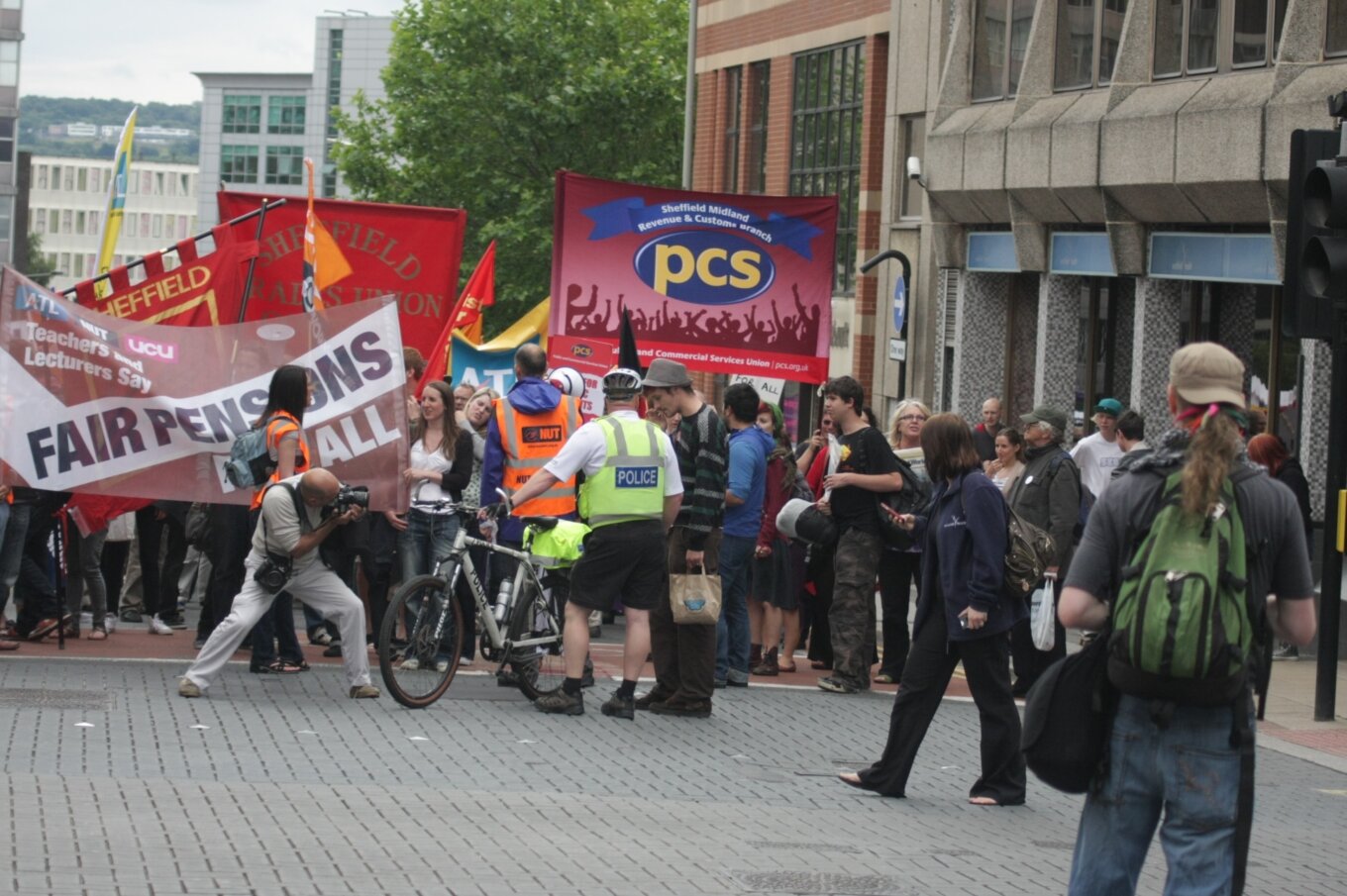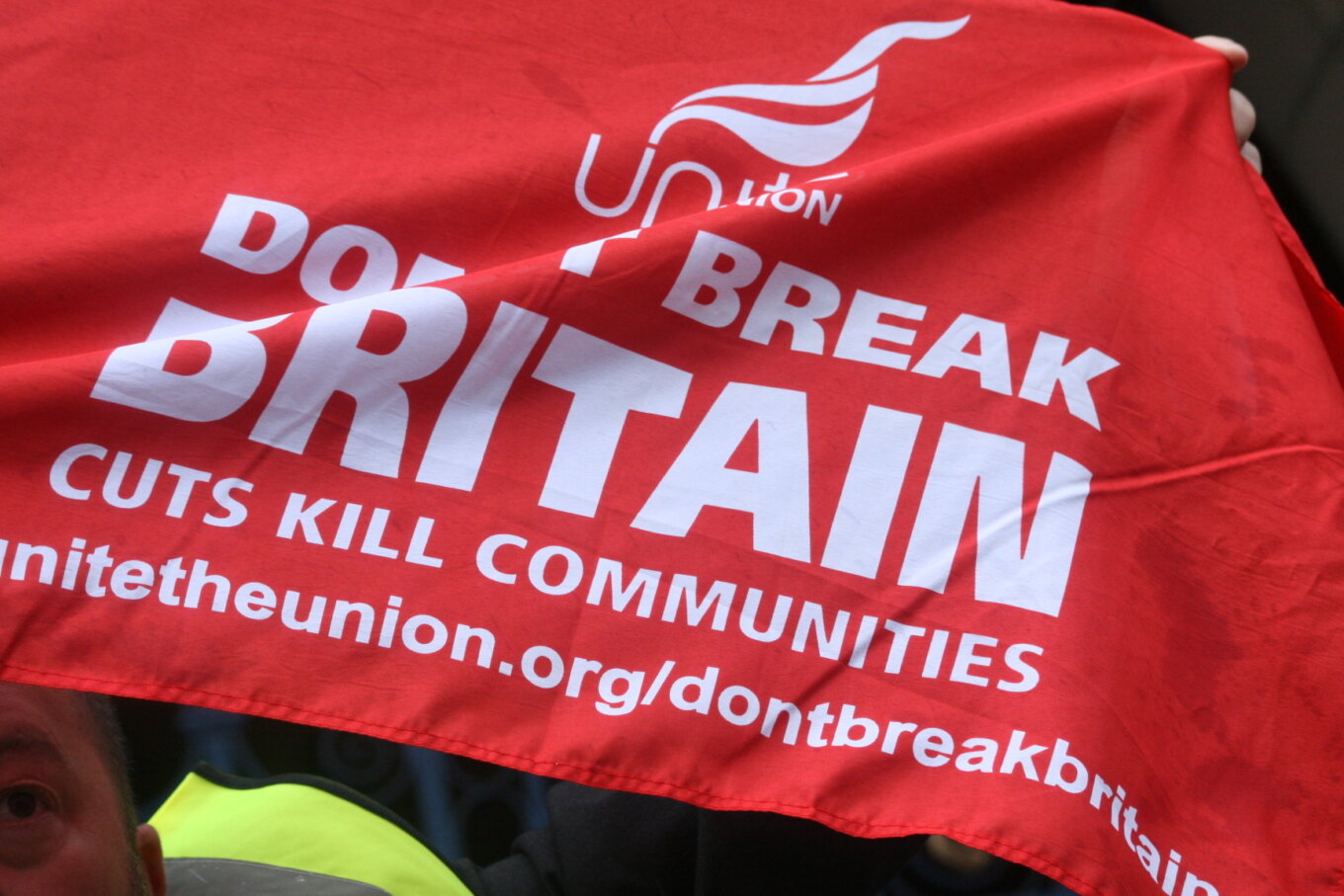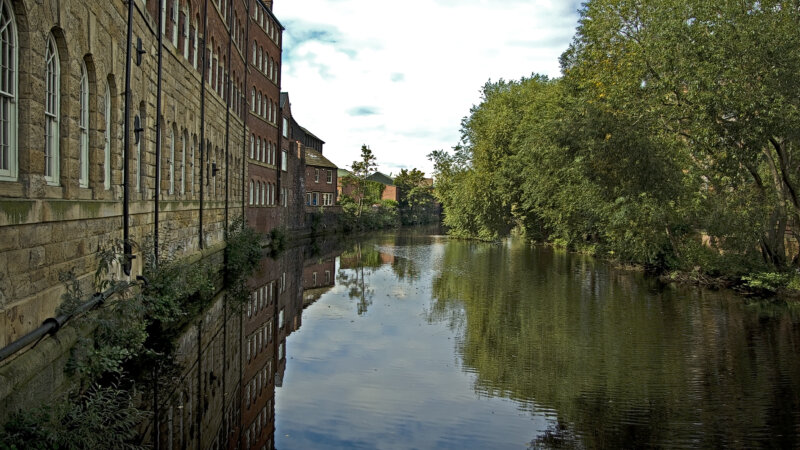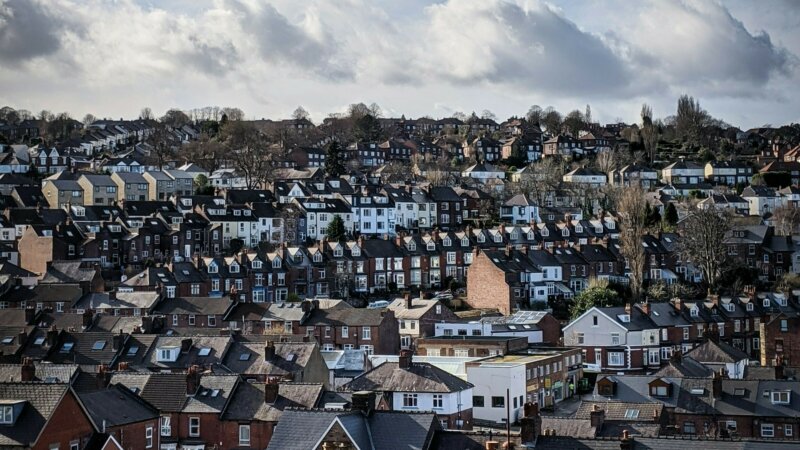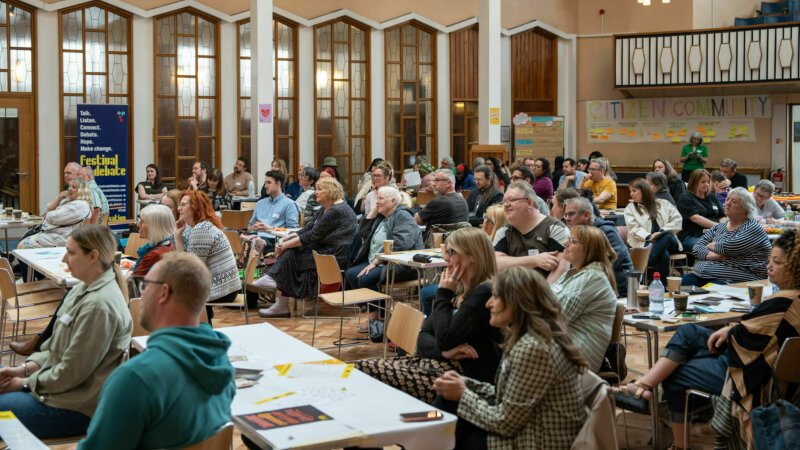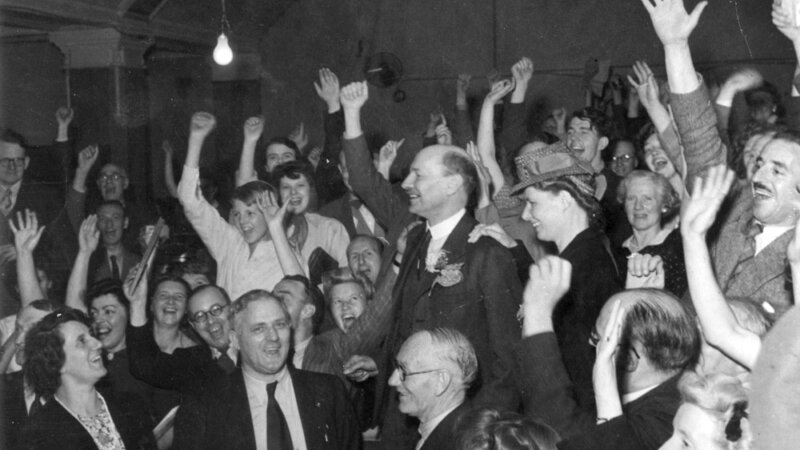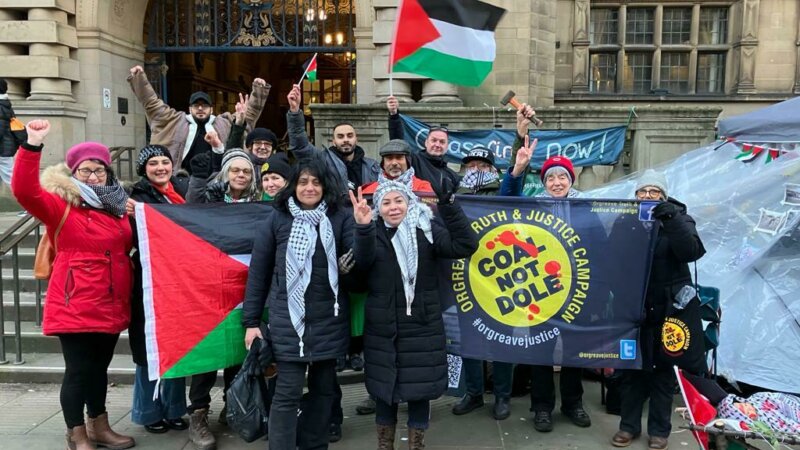Trade unions: a complicated story
Trade unions are often accused of being anti-environmental, anti-democratic and out of touch. Ben Manovitch looks at what the future of organising needs to look like.
For part one of this piece, see The power and potential of trade unions during a cost of living crisis
Trade unions are certainly not without their critics. Some of the arguments levelled against unions include:
Unions are dinosaurs
Some say that trade unions are simply a thing of the past, a feature of a bygone age, and their four-decade-long decline has certainly diminished their power.
They remain, however, the largest social movement in the UK. Around one in every four of us is in a trade union. And Mick Lynch and the RMT have shown many of us recently that they still have power and relevance today.
Unions are anti-environmental
Organised labour has had a complex relationship with the green movement.
There are a number of examples of unionised workers using their industrial power to fight for the environment, and of course they should, our society depends it. The most well-known internationally might be the work done by the Builders Labourers Federation (BLF) in Australia in the 1970s – in what are referred to as the green bans. These construction workers successfully went on strike to protect both working-class communities and many green spaces.
More locally, workers who were unionised at Lucas Aerospace in the UK, also in the 1970s, came up with some radical ideas (the Lucas Plan) to move the business from armaments to sustainable products and technologies.
Sadly, it was ultimately rejected by the management of the business.
The economic benefits of a large organised labour movement would also protect our environment, as a more equal world would be much easier to decarbonise.
“That’s because, in a more equal society, energy demand shifts from transport and luxury to necessities and subsistence.”
This is particularly important when we think about climate justice given that those who are affected the most by climate breakdown are the people who contribute the least to it.
We also know that, like democratic participation, environmentalism is not the priority of lots of people who are struggling to put food on the table and pay bills – but we need to mobilise a majority to fight the climate criminals who control our states and economies.
To do this, we need to ensure we can meet everyone’s material needs.
There has been a tension however between unions' short-termist support for some anti-environmental jobs with the obvious long-term desire for all workers to live on a healthy planet.
This short-termism sees expression in GMB’s pro-fracking line, Unite’s welcoming of airport expansion and the RMT’s (albeit narrow) rejection of support for a Green New Deal.
Without political power to guarantee jobs for workers, it is understandable on one level to see why this happens, but the unions affiliated to Labour in 2019 ultimately backed the party’s plan for a green industrial revolution, which promised job creation and a just transition. It was not as radical as many would have hoped or wanted, but it did show that organised labour will get on board with environmentalism when livelihoods are protected.
It is certainly an aspiration for many different thinkers that more workers in the future, like the BLF, target production (the supply), instead of the demand, so that it can be completely remodelled in a way that protects our planet.
Unions are anti-democratic
Whilst unions do have a vital democratic function, many people have highlighted their undemocratic features as something that needs to change. Union bosses can earn 6-figure salaries, way in excess of their members’ earnings. The bureaucracies that operate unions can also have different interests to those of their members. This can result in them selling deals offered by employers that workers do not want or not supporting workers who want to take collective action together.
Calls for democratisation might include union staff pay being pegged to members’ earnings, all union officials being subject to elections and fixed-term posts, paid organisers returning to normal work after completion of their term, union staff being subordinate to the decisions of worker committees and any negotiations with employers being led by workers or broadcast so that they are transparent.
Some would want no paid union staff at all, seeing them as a conflicted third party, instead opting for only workers acting for themselves; being their own representatives for their interests. In this way, those involved seek to reflect the society that they want to build in their organising method.
All of these ideas have their advocates and detractors – but anything that puts workers in control and increases their power would be a good thing; this will probably be an area for continued debate and progress in the union movement (and certainly an area for continued learning for this writer).
A sleeping giant
If unions are to rebuild their strength, then they have to organise.
Most unions in the UK, most of the time, operate a service model. Members pay their dues and they get advice, advocacy and an individual insurance policy in return. This does nothing to improve the collective.
Workplace organising might be described as the recruitment of workers into a union (when they are not already in one) and moving them to take collective action together to improve their lot.
This is no easy task. There are so many factors that normally need to come together for this to happen: agitation, political education, expectation raising, trust building, encouragement, comradeship, freedom to act and wins.
The recent announcements for strike ballots following the RMT’s lead this summer shows precisely how confidence building can assist in organising.
In an ideal world, militancy would come from below and workers would lead themselves without the need for an official union. However, the reality is that wildcat actions are not spontaneously erupting with any great frequency, although they certainly do happen from time to time. And whether you want union bureaucracies or not, organising often takes time, resources, expertise and a lot of energy and skill, and sometimes it would not happen at all if it was not stimulated by an organisation.
If a person is trying to bring people who are not already unionised into a union, then they might be spending many hours on their own, coming up against doors being closed in their face, both figurative and literal. They could be dealing with sexism and racism and other issues in the workplace, which makes bringing people together hard, not to mention unfriendly employers.
It takes enormous strength of character to persevere in these conditions. Organisers are at the coalface of social and political change, and we must show our gratitude and support to them in whatever way we can.
The normal calls for supporting trade unionism involve asking people to join, if they are not already in one. We should all join a trade union, we should encourage others to do the same and if we are in them, we should organise.
We can also support them with our money. We can contribute to strike funds and we can directly fund organising.
We need to do as much as we can to activate the power of this sleeping giant.
The Bread & Roses Project
The Bread & Roses Project was setup in 2021 in Sheffield by myself and my friend Rosh with the objective of raising money to fund more union organisers to target unorganised workers who are low-waged and precariously employed.
Rosh said:
The majority of us are workers, and they are the most effective counterweight to billionaires, bosses and corrupt politicians. I want to do as much as I can to support them in the future.
This is not to diminish other forms of organising, which are vital for the just world we want to see, or to suggest that workers are somehow morally superior in any way – it is just a point about the power they have as a collective.
The Bread & Roses Project also wants to prefigure the world we want to see as much as possible, which means recognising intersecting oppressions and redistributing power and wealth wherever we can.
With all this in mind, we reached an agreement with the Bakers, Food and Allied Workers Union (BFAWU) where it would train and employ an organiser to run campaigns in Rotherham, targeting poverty-wage paying wealthy employers like well-known fast food and pub chains.
This is part of their Union Towns’ initiative. It is targeting people / workplaces that are not currently unionised and is currently running campaigns in Sheffield, Leeds and Rotherham.
Rotherham is a large town in South Yorkshire where people are earning far below the national average. Only 3% of people employed in the hospitality sector nationwide are actually in trade unions, making it one of the least unionised sectors in the country and, as a result, it has some of the lowest pay.
Even worse, it is an industry that is known to disproportionately employ Black and brown people, compared to white folks, and it pays them worse. BFAWU had done some radical organising in recent years in this area with McStrike, SpoonsStrike and the Sheffield Needs a Pay Rise campaign.
💸 These workers have just won a 44% pay rise!
— UnionTowns (@union_towns) August 25, 2022
With the help of Sheffield Needs A Pay Rise, hospitality workers at Sheffield’s Cutlery Works have just won BIG.
🔄 Share to show the power of organising.#EnoughIsEnough @BFAWUOfficial pic.twitter.com/3vL9lBt33k
The Bread & Roses Project got to work raising the money to fund this plan – but specifically targeting wealthy people who are sympathetic to the cause of collective betterment.
This is because we do not all suffer equally under capitalism. Some of us have decent jobs, with good incomes. Others might own a house, have inherited money or stand to do so.
If we truly believe in a world where power and wealth is fairly distributed amongst all members of society, then we do not have to wait for anyone else to redistribute. We have the power to do it now.
There are groups doing fantastic work in helping many people to realise quite how privileged they are, such as the workshops run by The Class Work Project and Resource Justice, both of which foreground the importance of redistribution in the here and now.
Rosh again spoke about their contribution to this project:
Society seems to teach us that talking about our income, our money, is a grubby thing to do. But if we disagree with the notion that your job, your income or your house should confer on you some special social status and we want everyone to benefit from the same material resources, then we need to open up the books and start a conversation.
This is why we gave everyone who we spoke to a balance sheet of our earnings and capital (current and projected), and our financial contribution to this project. Ben, for example, had £21k in savings that he had inherited and gave £7k to this project and 10% of his monthly income, about £100 per month. And this is just one small part of the capital transfers we have both done over the last couple of years.
From the micro, to the macro: a redistribution story
The new Rotherham organiser for BFAWU, Jack, began work in earnest in 2022. He has spoken of the impact their organising has had already:
It is very early days but it is great to be out and about speaking with workers in Rotherham. We are on the cusp of forming our first worker committee.
So many people are really struggling to make ends meet and they are working so hard. Yet businesses are reporting record profits and we’ve been told to fuck off by management, even though we are just trying to help people get some basic financial security.
This fightback could not have happened had people not been committed to giving away some of their class privilege, to assist the struggle to build a fairer world. It is a small step – but hopefully there will be many more like it.
Jonny, one of the lead organisers and architects behind Union Towns, says how essential it is:
We have been organising, struggling and winning. Our model works. Just last month workers in Sheffield at Cutlery Works won a 44% pay rise. This just would not have happened had we not had dedicated, tireless organisers, and people willing to financially support these kinds of organising drives.
We want to grow and do more vital campaigns, and if people were interested in this then they can support us with a monthly payment via our Unions Towns website.


